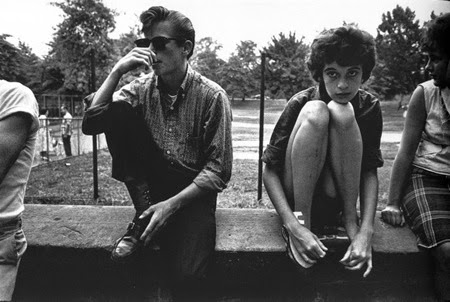 |
| Joel Stein, Time Magazine |
As we compare our generation to our predecessors, an interesting phenomenon to observe would be the growing tendency of materialism amongst teens. With capitalism booming, it's safe to say that we can access goods quicker and with more selection than ever. Interestingly,
Jean Twenge a professor of psychology at San Diego State University had this to say: "Compared to previous generations, recent high school graduates are more
likely to want lots of money and nice things, but less likely to say
they're willing to work hard to earn them." In the current social environment we live in, advertisements plague the surfaces of almost anything that is visible. If companies in 2014 get a chance to market to us, they will.
Rich Vancil a VP at IDC even states this: "We know for certain that increases in marketing budgets follow increases in revenues. It is not the other way around."
Capitalism has encouraged individuality, as do a lot of the products we've grown to praise. At live concerts, we'd rather view the performance through tiny HD screens as we record with our phones to post proof to our facebook walls rather than immerse ourselves into the art with our own two eyes. I watched footage of
Woodstock and compared the crowd ambiance to what I've experienced at shows. In 1969, the kids in the crowd had to be fully focused to enjoy the concert, with no technological distractions. But nowadays, if there's any dead-time during a performance, kids automatically turn to their smartphones as an impulse to provoke a level of mental stimulation that researchers say can be addictive. Now I don't want to generalize, but Patti Smith, in her book
Just Kids, seems to describe the generational thinking of her peers as more community-orientated, more creation-heavy young adults that survive primarily off art and company rather than consumables and social status. Today's generation, is definitely more dependent on accessories and, according to Adam Gazzaley, a neuroscientist at the University of California, San Francisco, it's affecting our brains. " The nonstop interactivity is one of the most significant shifts ever in the human environment." This nonstop interactivity is creating a level of dependance within our generation that Patti Smith's peer group wasn't exposed to. It's amazing to imagine what her daily routine was, when we take into consideration that ours as computer users means visiting 40 sites per 24 hours. This high level of consumption and interaction is rapidly defining our generation as distracted, needy, reputation-seeking individuals and it'll be interesting to see if we've hit our peak, or if somewhere down the line, consumables will fully engulf us.
























